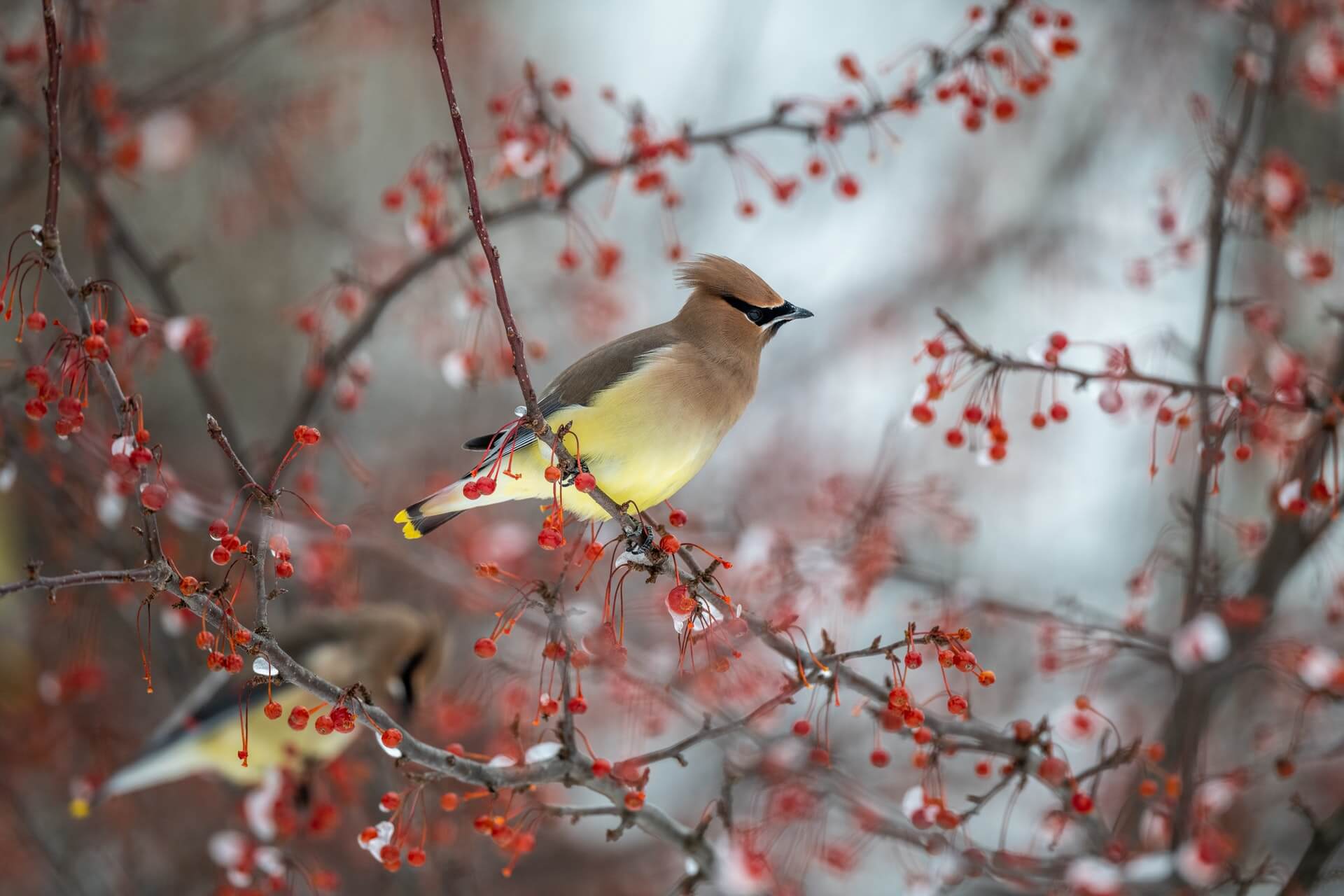
EXETER, United Kingdom — Climate change could end up wiping out large portions of berries and other fruit-bearing plants, a new report warns. Researchers from the University Exeter note this wouldn’t happen because certain regions couldn’t sustain these plants and trees anymore, but because birds will stop carrying seeds there.
Scientists say migratory birds carry seeds in the “wrong direction” to help plants cope with global warming. The seeds of most plants in Europe’s woods are dispersed by birds flying south, rather than north.
The best conditions for species are moving towards cooler latitudes, which unfortunately re-draws the map of life on Earth. It also threatens the survival of 65 percent of fleshy fruits, according to the study’s estimates.
“Contemporary climate change is so fast that many plants require dispersal distances far beyond those that normally take place locally,” says lead author Juan Pedro González-Varo from the University of Cádiz, in a university release. “This is where migratory birds can play a major role, as they are capable of dispersing seeds over tens of kilometers.”
Could climate change affect two-thirds of the berry population?
According to the study, the over-whelming majority of plants sent south towards drier and hotter regions at the equator will be less able to keep pace in their new locations. There will only be a few “winners” that instead start sprouting in the cooler northern countries.
The findings in the journal Nature shed light on how plants will respond to rising temperatures. The report also has implications for the function of ecosystems and animals higher up the food chain, including humans.
Dr. Gonzalez-Varo and colleagues analyzed 13 forests across Europe and the United Kingdom. They looked at 949 individual interactions between 46 species of birds and 81 varieties of berries they eat.
“We wanted to know the potential of plant species to be dispersed by migratory birds towards future favorable areas,” Dr. Gonzalez-Varo explains.
Results show only 35 percent of the fruit-bearing seeds are spread by birds that go north in spring, in comparison to 86 percent by those travelling south in the fall. Some seeds are carried both north and south, which is why the figures don’t add up to 100 percent.
“Under climate change, species redistribute themselves to track suitable climate conditions,” says Dr. Benno Simmons from the University of Exeter. “As plants cannot move themselves, they require species like birds to disperse their seeds to new areas.”
“We wanted to know how well migratory birds might be able to do this,” Simmons adds. “We found that northward dispersal to cooler areas is done by only a small number of migratory bird species, some of which are under hunting pressure. “Our study emphasizes the importance of these species for helping European plant communities experiencing climate change.”
Birds play a vital role in spreading food across the world
Fleshy fruits are swallowed whole by birds, with the hard seeds expelled in waste. Those droppings act as nitrogen-rich fertilizer to nourish a seedling. The fruits range in color from red to blue, to black or white. Migrating birds also prefer those high in fat, which sustain them in flight over enormous distances.
Mobility allows many animals to reach new areas with a suitable climate during migration periods. However, plants also depend on this for the dispersal of their seeds. The trend for scattering them southwards is counter-productive if they are to adapt. Researchers incorporated this information on fruiting periods and migratory patterns into the study.
“For a plant species to be dispersed by birds migrating north, it must bear fruit between February and April,” González-Varo adds. “Plants with fruits in this period have a very long fruiting period, as occurs in junipers, or a very late fruiting period, as occurs in ivy.”
Birds in Europe migrate north in spring and south in autumn. Those with the greatest potential to disperse plants to cooler latitudes includes the Palearctic species that winter in central and southern Europe or North Africa. These include robins, blackcaps, blackbirds, and various species of thrushes – which are abundant on the continent.
“Although these are common species, the potential for seed dispersal to the north lies with only a handful of species, some of them heavily hunted in the Mediterranean Basin, both legally and illegally,” González-Varo concludes. “We believe that our study gives added value to these species, since they would be responsible helping European plant communities respond to climate change.”
SWNS writer Mark Waghorn contributed to this report.
"fruit" - Google News
June 25, 2021 at 03:07AM
https://ift.tt/3zWuitK
Fruit trees and plants could be wiped out by climate change’s impact on bird migration - Study Finds
"fruit" - Google News
https://ift.tt/2pWUrc9
https://ift.tt/3aVawBg
Bagikan Berita Ini














0 Response to "Fruit trees and plants could be wiped out by climate change’s impact on bird migration - Study Finds"
Post a Comment